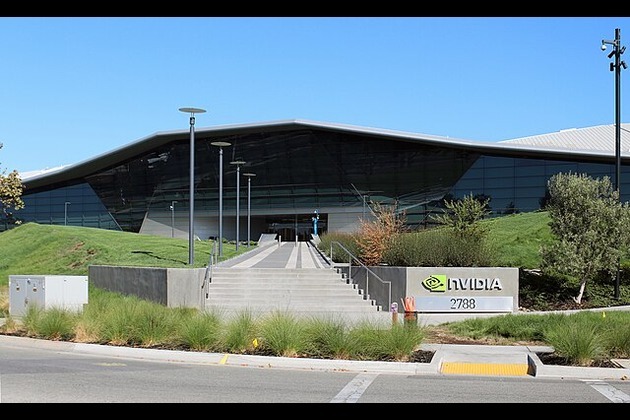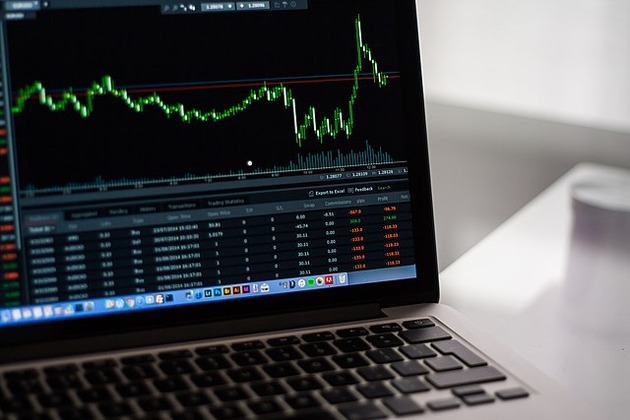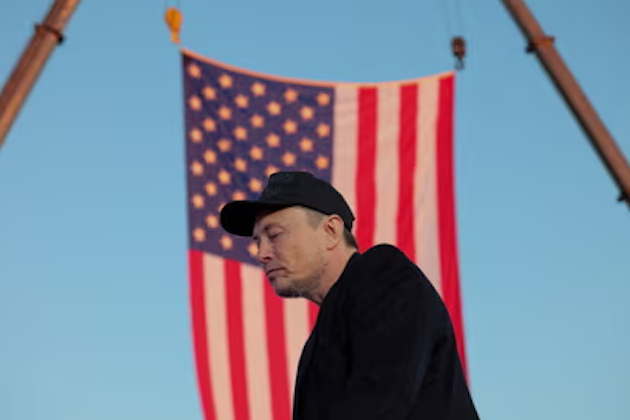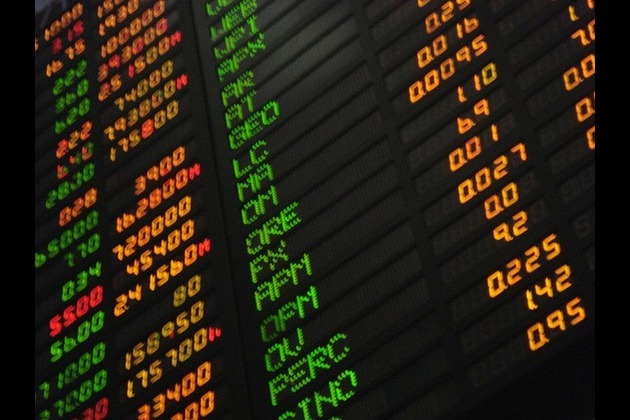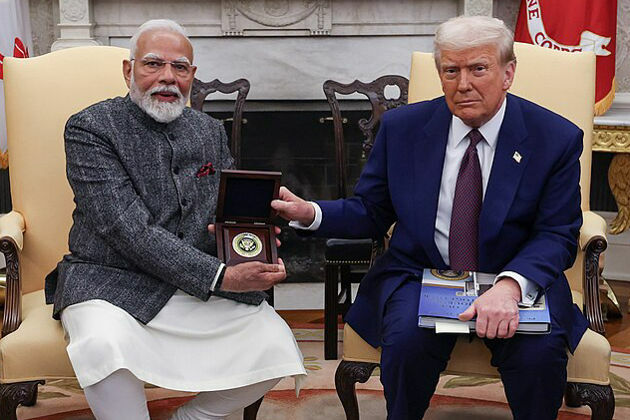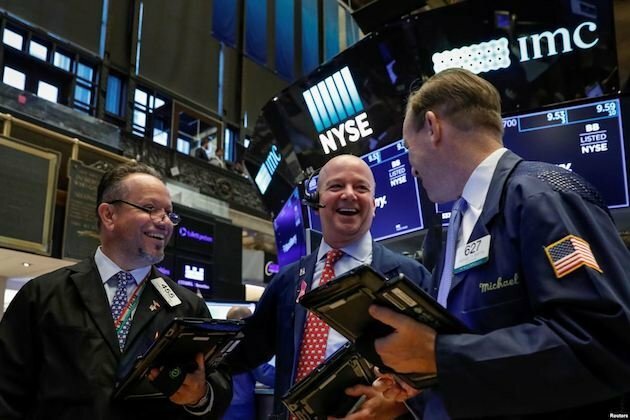Column: Why is U.S. losing its appeal
Xinhua
05 Jul 2025, 13:15 GMT+10
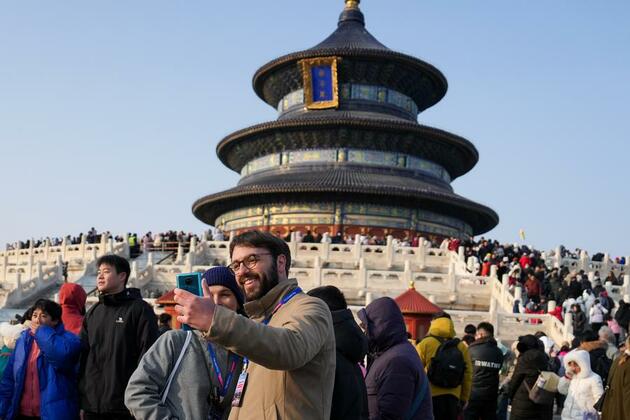
China is becoming "cooler" because of decades of consistent, people-centered development. The United States is losing its appeal due to years of isolationism and elite capture. Should the U.S. policies persist, its "cool" could risk vanishing altogether.
by Shao Xia
The Economist recently featured an article titled "How China Became Cool" -- a rare departure from its typical tone on China.
The article highlights not only China's growing global appeal, but also the concurrent decline of the United States' international image. While some Americans may reject this narrative, it captures an irrefutable trend: international perceptions increasingly favor a "cooler" China over a "less inspiring" America.
ECONOMIC MODELS: ELITE-CENTERED VS. PEOPLE-CENTERED
While the United States proclaims itself a model of democracy, its economy has revealed an undeniable truth of exploitation, with wealth concentrating in the hands of the privileged few while ordinary Americans face growing hardships.
Nowhere is this more evident than in healthcare. Despite living in the world's largest economy, 40 percent of adults in the United States forgo essential medical care due to crippling costs. Meanwhile, pharmaceutical giants reap record profits -- insulin prices have tripled in a decade, forcing people with diabetes to ration lifesaving doses, a desperate measure that has cost many lives.
Since the 1970s, U.S. worker productivity has risen steadily, yet inflation-adjusted wages have stagnated. CEO compensation, in contrast, soared by 1,460 percent. According to a Bloomberg survey, by the end of 2024, the wealthiest 0.1 percent of U.S. households (just around 133,000 families) controlled 13.8 percent of the nation's total wealth, while the bottom 50 percent held just 2.5 percent.
China's trajectory presents a stark contrast. As its achievements become more visible, even Western observers acknowledge that China's governance, although not without flaws, consistently prioritizes its people's livelihood. Take infrastructure. Since 1949, China's railway network has expanded from 21,000 km to over 160,000 km, including 48,000 km of high-speed railways, the world's longest.
U.S. economist Richard D. Wolff observes that while the United States possesses the technology and expertise to build advanced railway systems, such projects are often deemed unprofitable and left unimplemented. In contrast, China has invested heavily in railway connectivity, especially in remote areas where travel was historically difficult for locals, prioritizing public benefit over immediate profitability.
"This is a whole different way of thinking about what an economy is for: either the economy serves the people, or the people serve the economy," said Wolff.
SCIENCE AND TECHNOLOGY: HEGEMONIC BULLYING VS. COLLECTIVE PROGRESS
Recent actions by the U.S. government -- cutting off funding to top universities under the pretext of fighting antisemitism, baselessly accusing Harvard of "coordinating with the Communist Party of China (CPC)," and even threatening to revoke visas for Chinese students in the name of "putting America first, not China" -- have further eroded trust in its "openness and freedom."
U.S. success in science has long depended on the contributions of global talent. But when increasingly treated as "spies," "adversaries," or even potential "terrorists," foreign researchers are left with little choice but to leave.
A recent survey by Nature found that 75 percent of U.S. scientists are now considering leaving, signaling a potential brain drain. If this trend continues, a key advantage of the United States could soon diminish.
Technological philosophies further distinguish the two countries: the United States restricts semiconductor exports to slow China's progress, yet Chinese innovations -- from BYD's electric buses rolling across Latin America to Huawei's 5G technology bridging Africa's digital divide -- demonstrate technology's role as a global equalizer. When the United States imposes tariffs on Chinese solar panels, it ignores how these very products cut energy costs for German households and electrify rural Kenya.
The pattern is clear: one weaponizes technology while the other humanizes it.
CULTURE: DIVISION VS. CONNECTION
Instead of bridging gaps within its society, the U.S. government has escalated its domestic "culture war," aggressively dismantling its policies on promoting diversity, equity and inclusion, and imposing a 100 percent tariff on foreign-made films -- widely seen as retaliation against Hollywood. This "war" functions more as political theater, manipulating public discourse through manufactured hatred to consolidate power.
Meanwhile, China's cultural appeal is gaining global recognition. Black Myth: Wukong captivates gamers globally; TikTok and Xiaohongshu facilitate cross-cultural conversations; Pop Mart's Labubu leads the global toy fashion; Chinese micro-dramas are winning followers around the world; Visa-free entry and tax refund policies are attracting more and more visitors to experience China firsthand.
The more people engage with Chinese culture, the more they identify with its fundamental values -- harmony without uniformity, and coexistence amid diversity. The recent signing of a convention to establish an international organization for mediation in Hong Kong by 33 countries, an initiative spearheaded by China, resonates powerfully. The world today needs more harmony, not hegemony.
The Denmark-based Alliance of Democracies Foundation reports that China's global approval rating climbed from +5 percent in 2024 to +14 percent, while the U.S. dropped from +22 percent to -5 percent. For the first time, China surpassed the United States in global favorability and stood out as the only major country with a positive net image.
POLITICAL CONDUCT: CORRUPTION VS. SELF-REFORM
Political donations and corporate-government "revolving doors" are seen as corruption in many countries. Yet in the United States, they're considered a commonplace practice.
This explains why in America, the government could spend 90,000 U.S. dollars for a bag of standard screws, and 1,000 dollars for a simple coffee mug. A high-speed rail project in California consumes billions of dollars yet shows no visible progress. Amid the chaos of U.S. politics, officials routinely profit from stock trades timed to policy shifts. No wonder people joke that U.S. savviest investors reside not in Wall Street or Silicon Valley, but Capitol Hill and the White House.
China confronts corruption differently: No one is untouchable in its anti-graft efforts. While business and politics often merge in the United States, China enforces a strict divide between public service and private gain.
Most Chinese intuitively grasp history's cyclical lessons. Ask a random person on the street, and they would recount how one dynasty's golden age gave way to fragmentation, how another's isolation precipitated decline, and how all these mean that prosperity and crisis alternate like seasons. Unlike the linear "end of history" theory popularized in the West, many in China view historical progression as a spiral -- one where the challenge lies not in escaping repetition, but in evolving beyond the vulnerabilities that doomed past dynasties: corruption, stagnation and disconnection from the people.
How? In 1945, Chairman Mao Zedong offered one solution: people's oversight. Today, the CPC has added one more: self-reform. The Chinese path remains viable precisely because the CPC is committed to public service, not private interests.
China is becoming "cooler" because of decades of consistent, people-centered development. The United States is losing its appeal due to years of isolationism and elite capture. Should the U.S. policies persist, its "cool" could risk vanishing altogether.
Editor's note: The author is a commentator on international affairs, writing regularly for Xinhua News, CGTN, Global Times and China Daily.
The views expressed in this article are those of the author and do not necessarily reflect the positions of Xinhua News Agency.
 Share
Share
 Tweet
Tweet
 Share
Share
 Flip
Flip
 Email
Email
Watch latest videos
Subscribe and Follow
Get a daily dose of San Diego Sun news through our daily email, its complimentary and keeps you fully up to date with world and business news as well.
News RELEASES
Publish news of your business, community or sports group, personnel appointments, major event and more by submitting a news release to San Diego Sun.
More InformationCalifornia
SectionNvidia briefly tops Apple’s record in AI-fueled stock rally
SANTA CLARA, California: Nvidia came within a whisker of making financial history on July 3, briefly surpassing Apple's all-time market...
ICE raids leave crops rotting in California, farmers fear collapse
SACRAMENTO, California: California's multibillion-dollar farms are facing a growing crisis—not from drought or pests, but from a sudden...
Grammarly acquires Superhuman to boost AI workplace tools
SAN FRANCISCO, California: Grammarly is doubling down on AI-powered productivity tools with the acquisition of Superhuman, a sleek...
Robinhood launches stock tokens for EU investors, adds OpenAI
MENLO PARK, California: Robinhood is giving European investors a new way to tap into America's most prominent tech names — without...
Trump hints at DOGE investigation of Musk subsidies
WASHINGTON, DC - U.S. President Donald Trump on Tuesday claimed Elon Musk's success has been built on government subsidies. Without...
Nvidia execs sell $1 billion in stock as AI boom drives record prices
SANTA CLARA, California: Executives at Nvidia have quietly been cashing in on the AI frenzy. According to a report by the Financial...
Business
SectionStocks worldwide struggle to make ground Friday with Wall Street closed
LONDON UK - U.S. stock markets were closed on Friday for Independence Day. Global Forex Markets Wrap Up Friday with Greeback Comeback...
Nvidia briefly tops Apple’s record in AI-fueled stock rally
SANTA CLARA, California: Nvidia came within a whisker of making financial history on July 3, briefly surpassing Apple's all-time market...
ICE raids leave crops rotting in California, farmers fear collapse
SACRAMENTO, California: California's multibillion-dollar farms are facing a growing crisis—not from drought or pests, but from a sudden...
Trump signals progress on India Trade, criticizes Japan stance
WASHINGTON, D.C.: President Donald Trump says the United States could soon reach a trade deal with India. He believes this deal would...
Grammarly acquires Superhuman to boost AI workplace tools
SAN FRANCISCO, California: Grammarly is doubling down on AI-powered productivity tools with the acquisition of Superhuman, a sleek...
Standard and Poor's 500 and and Nasdaq Composite close at record highs
NEW YORK, New York -U.S. stock markets closed with broad gains on Thursday, led by strong performances in U.S. tech stocks, while European...

